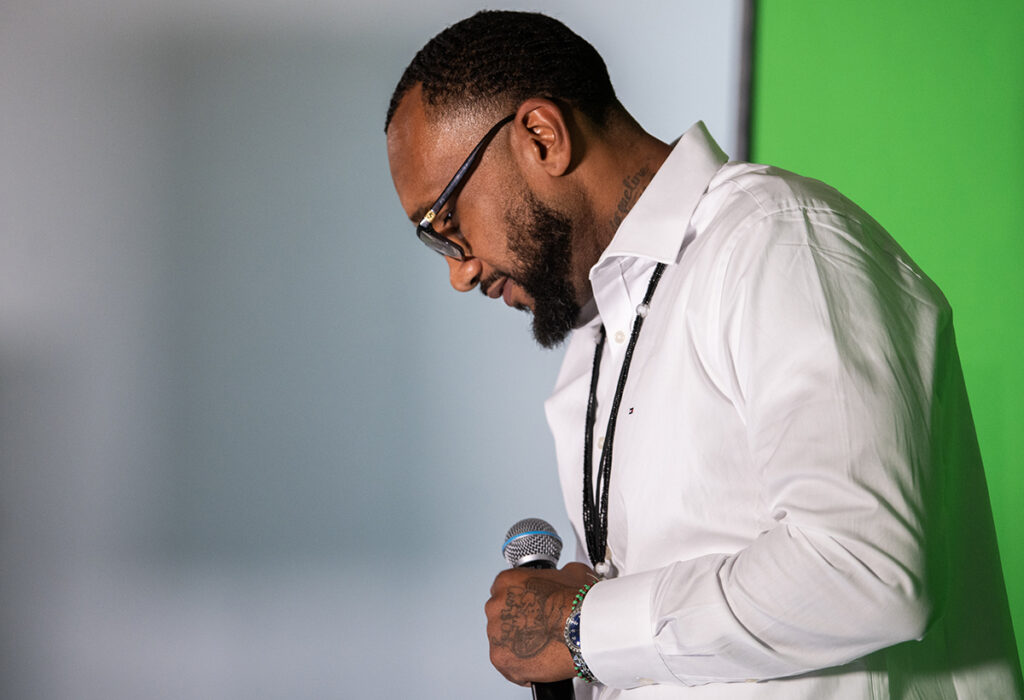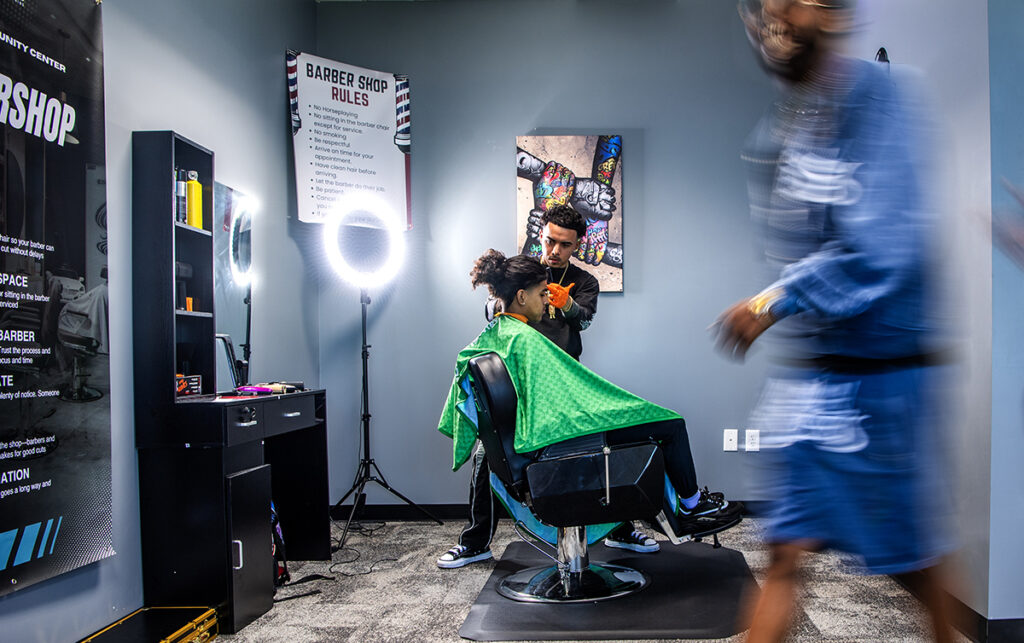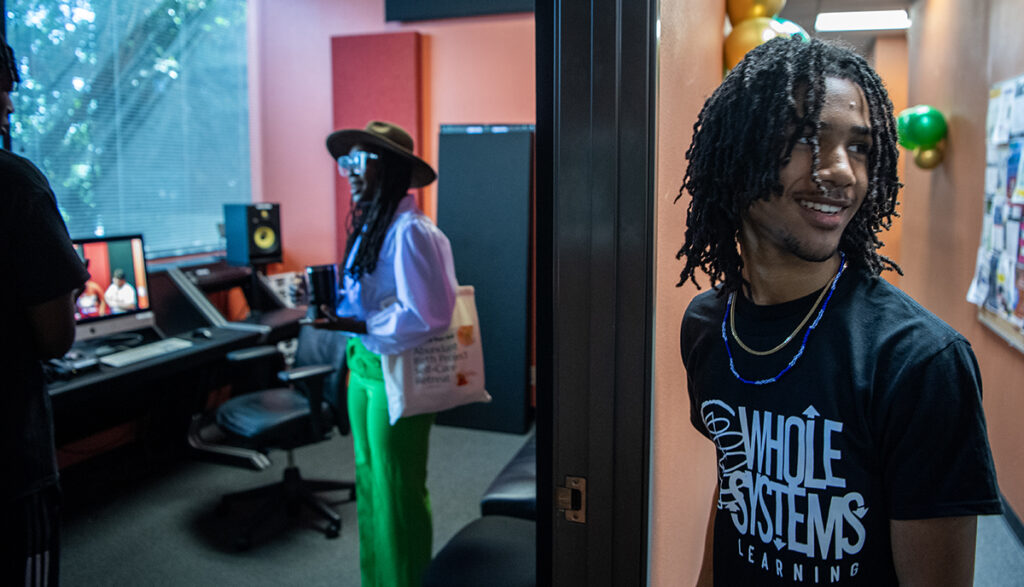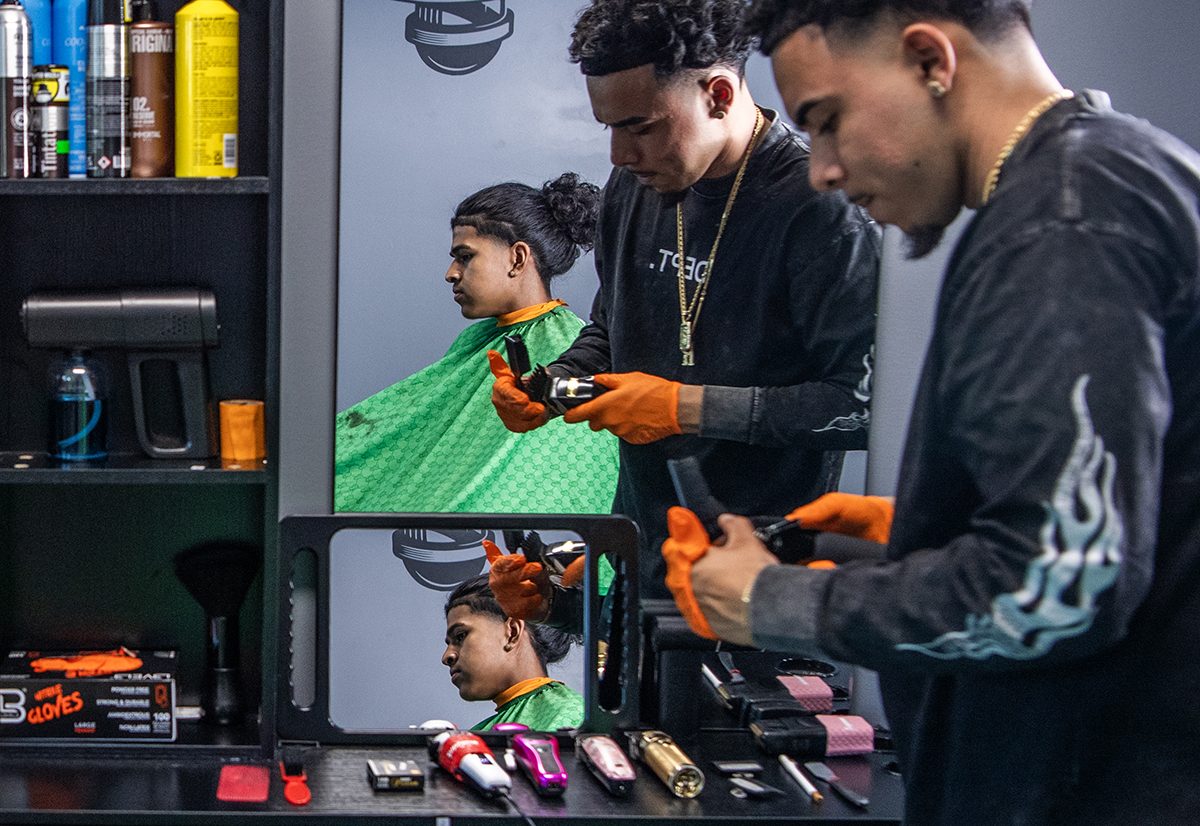Most 18-year-olds aren’t concerned with their credit score. Reymundo Ramirez is.
Recently graduated from Jordan High School, Reymundo already has a tight eye on his finances. By working a job scooping ice cream and as a barber, he saved up enough to pay cash for his first car and start saving for his future.
He was set on this path as a junior when, by chance, he was cutting a friend’s hair at the office of a small nonprofit in North Long Beach. The organization, Whole Systems Learning, mentors at-risk teens and young adults to steer them away from the corrupting influence of gangs and drug dealing.
At the time, Ramirez was “hanging with the wrong crowd” and not on track to graduate, said Reinaldo Henry-Ala, the executive director at Whole Systems Learning.
Like so many teenagers, Reynundo was focused on the limited world in front of him, in this case, making some quick money even though it “had the potential to send him to incarceration,” Henry-Ala said.

Mentors at Whole Systems Learning sat him down and soon struck a deal: if you graduate, we will pay for your barber school.
Two years later, Ramirez has a dedicated barbershop in Whole Systems Learning’s recently expanded Youth Center, where he gives haircuts to his fellow teens.
Unveiled last week, the 15,5000 square foot center in North Long Beach has space for a 24/7 drop-in center for homeless youth, a youth-run print shop, a fully equipped weight room, a podcast studio and a dedicated meeting space for the teens who designed the expansion as part of the nonprofit’s youth advisory council.
It’s a refuge tucked in an often-ignored corner of Long Beach tucked between industrial warehouses and the 710 Freeway.
There, the office is staffed 24/7 to accept teens looking for “a safe space and a warm meal,” Henry-Ala said. In the morning, the nonprofit sets them up with whatever help they need.
The young adults who come to Whole Systems Learning typically live in North Long Beach and Compton, joining the program to escape gangs, homelessness or legal trouble, according to Henry-Ala.
The youth program, called Turning Resilience Into Brilliance for Eternity or T.R.I.B.E., offers a chance to heal from trauma, offers individualized case management and teaches the teens entrepreneurship, conflict resolution, emotional intelligence and financial skills.
Three years ago, the first youth cohort had 20 members. To date, nearly 180 teens and young adults have passed through.
One teen told the story of how he came to the program in 10th grade after being caught bringing a gun to school. He explained he grew up in a house full of gang members and carried the weapon as protection.
After being kicked out of school, he feared Whole Systems Learning would also turn its back on him.
“They didn’t turn me away,” he said at the recent unveiling of the Youth Center. “They never look at any youth in this program like ‘get away.’”
He’s now in the U.S. Navy, a common pathway for graduates of the program, according to Henry-Ala.

“A lot of these kids like to be in the streets. They like to play with guns, they like to do all these different things, and it’s like, ‘Why don’t you learn how to do things properly?’” he said.
A team of mentors and case managers at Whole Systems Learning reinforces that, often helping teens and young adults navigate problems with the justice system.
One of those mentors, Wes Charles Jr. draws heavily on his own experience.
At 19, he was sentenced to 27-and-a-half years to life in prison for an attempted carjacking that left the victim with a gunshot wound.
Charles said he was wrongfully convicted based on faulty testimony from an eyewitness. More than two decades later, Charles was granted early release after former Los Angeles County District Attorney George Gascón recommended he be resentenced.
The Innocence Project is working to get his case exonerated.
Overcoming Difficulties
At an opening ceremony for the new Youth Center last week, the mood was celebratory, but two months ago, it was the last thing on Henry-Ala’s mind. He was worried about survival.
In May, he found out Whole Systems Learning was at the risk of losing a $500,000 state grant through the California Reducing Disparities Project. If cut during the state’s budget process, it would have meant letting go of eight full-time employees, Henry-Ala said.
In response, 15 staff members piled into two vans and made the six-hour trek to the state capitol to urge the state assembly’s Budget Subcommittee to back off from the proposed cuts to the state Health Department.
“If you cut this money you will be destroying hundreds, if not thousands, of lives down in LA County,” Kary Hughes, the nonprofit’s youth program manager, told assembly members.

The proposed cut was ultimately rescinded.
Despite this stress, Henry-Ala said the experience did have a silver lining.
“It was really a good bonding moment, especially for our staff because it really allowed them to understand how much each one of them is important to one another,” he said.
Three months prior to that Sacramento trip, Henry-Ala acutely felt the need for that support. He nearly left the executive director role after a T.R.I.B.E. graduate named Dante Williams was shot to death just a quarter mile from the Whole Systems Learning office.
Williams was one of the first teens to go through the program and had recently made a significant step toward a better life by getting off probation, making the loss all the more painful for his mentors.
Henry-Ala decided to stay after numerous texts and messages of support from the teens in the program.
At the Youth Center opening last Wednesday, Henry-Ala’s parents were on hand to celebrate with him. It was a monumental moment, he said, because, “They suffered for years because of my delinquency,” Henry-Ala said. “For them to see this day, [it’s] the best day of my life.”
The center, however, isn’t quite complete.
They plan to soon paint a mural of Williams on one of the walls.

